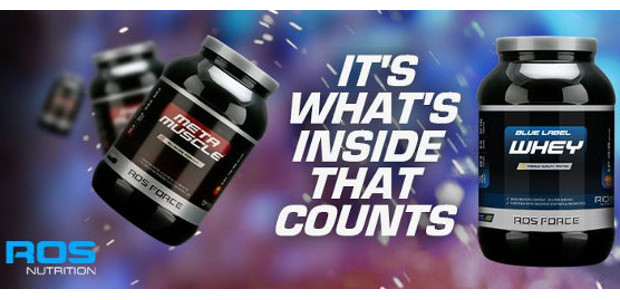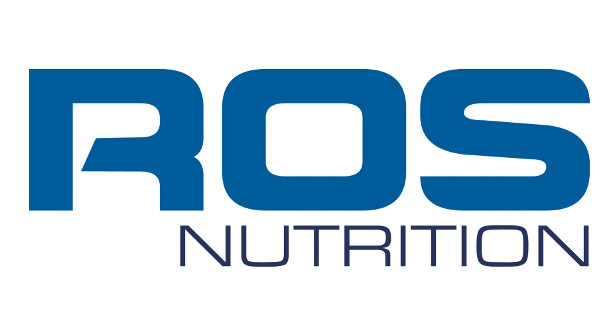Nutritional Insights To Enhance Your Performance by ROS NUTRITION
www.rosnutrition.com
TWITTER | FACEBOOK | GOOGLE+ | INSTAGRAM
Sports performance nutritionist Daniel Davey and supplement supplier ROS Nutrition share insights on the routines that helped Dublin GAA secure their third consecutive All Ireland trophy and ways you can maximise your sporting performance.
Preparation
With physical preparation completed during the week, you should spend the days leading up to a performance focusing on getting into the right mind set. Daniel Davey explains here how athletes should focus on relaxation techniques, nutrition and hydration.
Relaxation
Each athlete’s needs are different, but you should focus on relaxation activities and avoiding stress. Turn to music, read a book, cook or watch a film or series. Top athletes like to keep themselves busy by doing the normal everyday things that are a part of their regular routine.
Nutrition
A pre-performance nutritional routine should start 48-36 hours before ‘kick-off’. As the primary fuel source during high intensity exercise, athletes must make sure they have adequate stores of the energy found in glycogen (carbohydrates). For this reason, the meals of the Dublin players are strategically planned to include a minimum of three large meals and three snacks, ensuring they are optimally fuelled to perform to their full potential.
To aid relaxation and prevent boredom when having the same meals, athletes should be encouraged to prepare their favourite recipes.
Hydration
Often forgotten, hydration is key to optimum performance. This subject is taken very seriously – “athletes must closely monitor their hydration”, Davey says, “this is done quite simply by following a hydration protocol and monitoring urine to ensure it’s a pale colour”.
Recovery
It is not just preparation that is important for an athlete’s performance. Recovery techniques and routines are needed to prevent reduced immunity, losses in performance or even injury.
Davey describes the nutritional goals for post-performance recovery as the “three R’s”:
1. Restore – Top up depleted energy and fuel (glycogen) stores.
2. Rehydrate – Replace lost fluid.
3. Repair – Heal and mend damaged muscle tissue.
“Nutrition is just part of an athlete’s recovery strategy. Stretching, mobility, sleep and foam rolling are just a few of the other key areas athletes should focus on”.
In-Season – Dietary Insights
Meal Prep
It is not just before and after performances that athletes need to be aware of their dietary and nutritional needs. According to Daniel, “each athlete will have their own preferences, needs and tastes, making personal meal prep a hugely important aspect of a nutrition strategy.”
Meal Times
As a rule of thumb, athletes are generally expected to eat every 2-3 hours. However, this is dependent on when they wake up, their individual routines and training/gym sessions.
At Dublin GAA, we look to ensure players have sufficient energy for each training and gym session. A typical day can look like this: breakfast at 07:30, snack at 10:00, lunch at 13:00, snack in the afternoon at 15:00, pre-training meal at 17:00, recovery meal at 20:30.
Supplements
Supplements should be taken to support preparation and recovery, both for games and training. As preparation, Daniel advises taking a carbohydrate drink to help boost energy levels and, for a recovery, a whey protein based drink.
Athletes should also take fish oils daily and vitamin D during the winter months, to aid in boosting immunity and nutrient intake.
Post-Season – Dietary insights
To cope with the rigors of a season, athletes have a huge requirement for energy and carbohydrate-based foods. In professional or semi-professional sports, where training occurs multiple times a week, athletes have an even greater carbohydrate requirement.
However, in the post-season, athletes will tend to have much lower physical demands and carbohydrate requirements, as they take part in more casual activities to stay in shape; such as running, cycling, tennis and soccer.
For this reason, the top advice would be to reduce your overall energy intake and focus much more on quality protein foods and healthy fats. In food terms, you should eat more eggs, meat, fish and vegetables and less bread, rice, pasta and high energy snack bars.
Common Mistakes About Nutrition
There are several mistakes athletes can make when it comes to nutrition. One of the most common mistakes athletes make is implementing something new into their routine.
“Everything an athlete does regarding their performance should be practiced in training before being implemented in a match situation, I have seen situations where an athlete will look for a performance edge, for example a new energy drink, only for it to have a negative impact”- Davey.
Athletes are much better when sticking to a normal routine rather than experimenting with a novel concept, which may have a negative effect on performance.
Other mistakes that can be made by athletes include focusing on the wrong nutrient in the lead up to a match. An issue Daniel has found is that it’s not uncommon for an athlete to eat too much protein based foods instead of fuelling up with the right types of carbohydrate based foods like fruit, rice, potatoes, porridge or muesli in preparation to a performance.
Conclusion
Insights from Daniel Davey and ROS Nutrition provide an understanding of the nutritional routines professional and semi-professional athletes go through during and after a season.
From pre-performance relaxation techniques to post-season protein intakes, the right nutrition can aid an athlete’s performance and ability to last a sporting season.
About ROS Nutrition:
ROS Nutrition provides an expansive range of high-value sport and result-oriented nutritional products, designed to support consumers in the pursuit of their individual goals and ambitions.
All of ROS Nutrition’s products are made using the finest quality ingredients and are developed based on a critical analysis of the most relevant and up-to-date nutritional research. In addition, the company is dedicated to providing consumers with the education that will help them choose the most appropriate nutrition practices for their specific needs.







